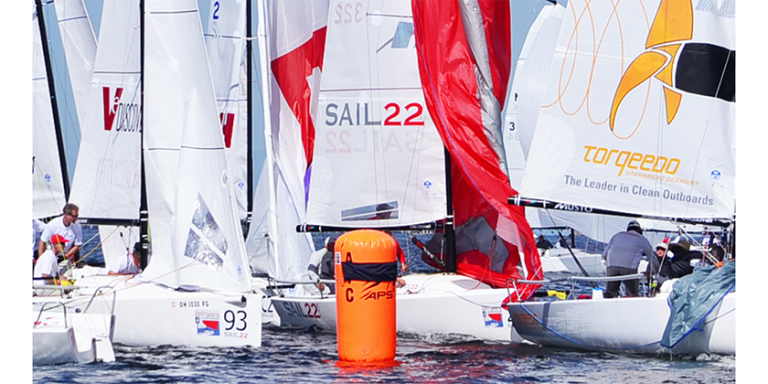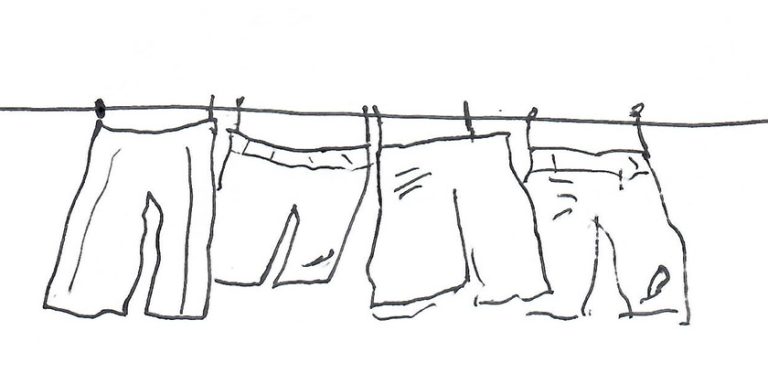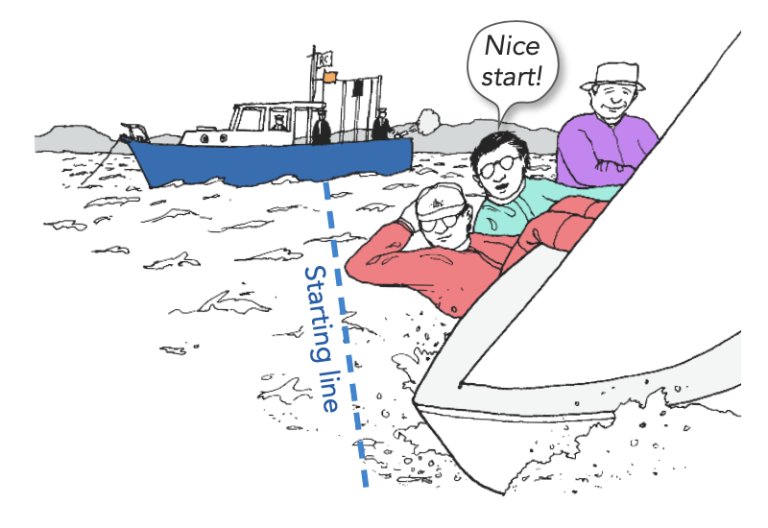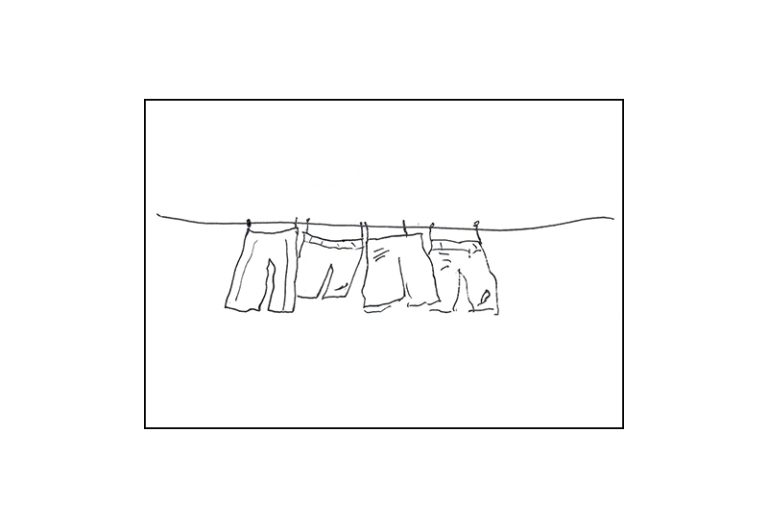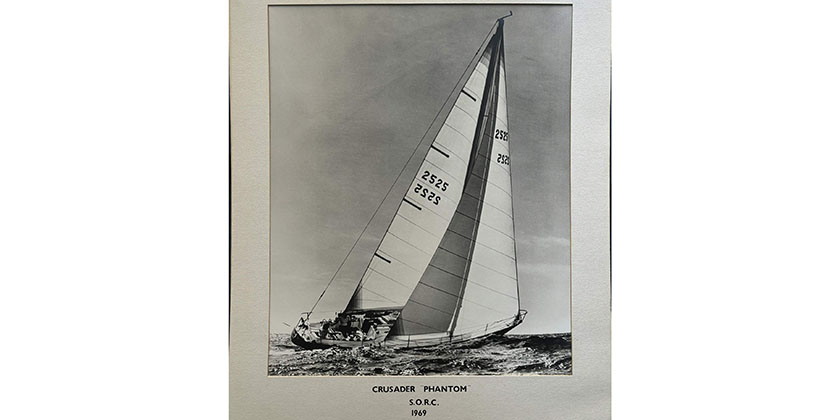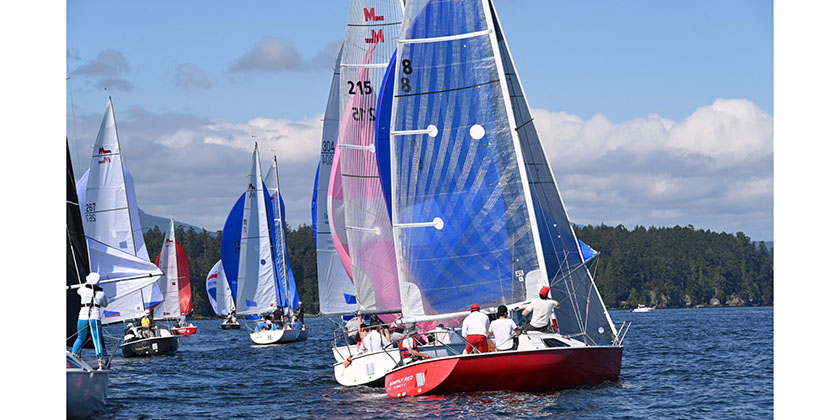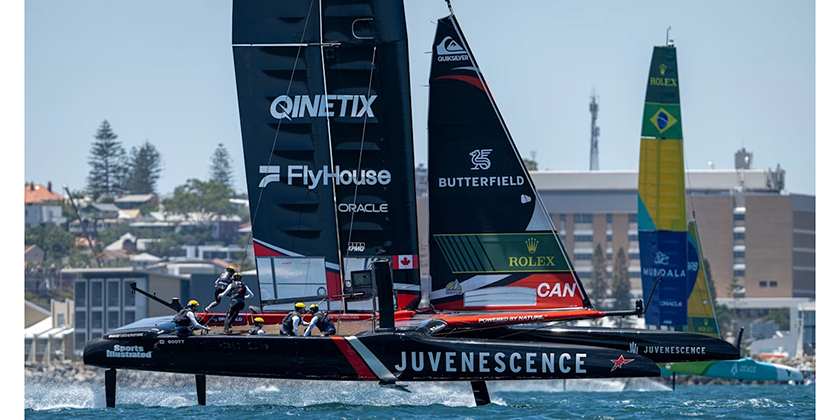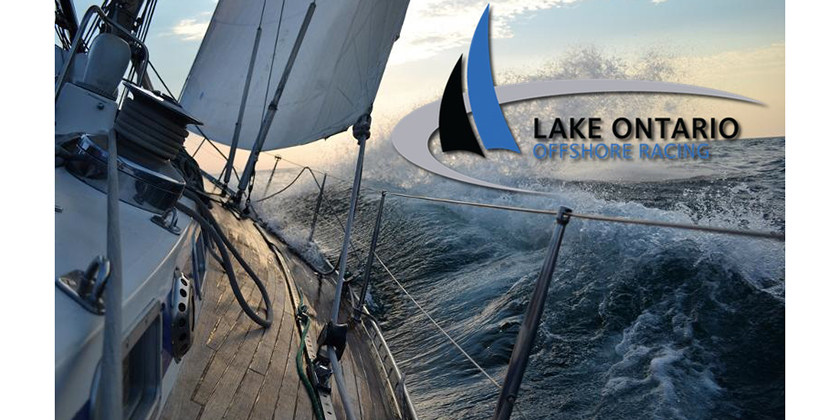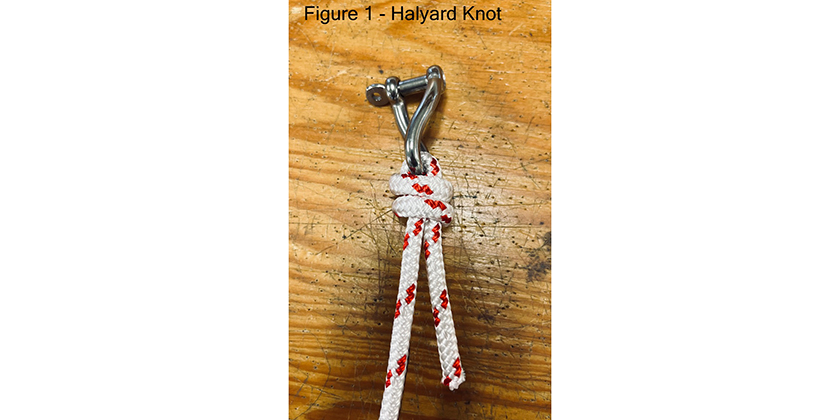Speed & Smarts: How to Tackle a Speed Problem – Part 1
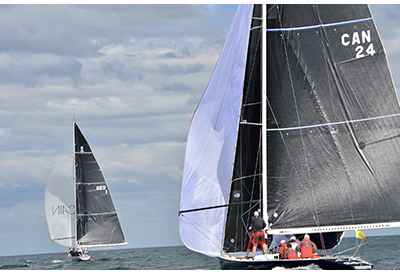
Feb 2, 2022
Do you find yourself fighting from behind more than you’d like?
In sailboat racing, speed is almost everything. It’s important to be smart at tactics and strategy, of course, but if you’re not pretty fast you will never be consistently at the top of your fleet. Therefore, good speed is worth a large investment of time and effort.
Every racing sailor has issues with speed from time to time, but these won’t normally turn into big problems unless you don’t make any concerted effort to fix them. The key for curing a case of the slows is to be logical, organized and persistent in your search for an answer. Attack the problem before it destroys your confidence.
Speed issues often cannot be solved in just an hour or a day. If you really want to be faster and win more races, you need to be ready for a long-term “speed improvement campaign,” not just a quick fix.
Once you realize you are going slow, the key is to figure out why. Approach this as you would look for a solution to any other major problem – explore the situation from many different angles so you can understand everything possible about your boat, yourself, your class, the conditions in which you sail and your teammates.
Here are a bunch of ideas for tackling a speed problem. If you do a lot of these things, finding an actual solution should be easy.
Accept no limits.
The best thing you can bring to bear on a speed problem is an attitude that is inquisitive, hopeful and relentless. Assume from the beginning that you have the potential to be as fast as your fastest competitor (but if you have a heavy old boat it may be tough, or costly). In other words, don’t accept limits on what is possible. Realize that every speed problem can be fixed – you just have to figure out how – and treat every speed issue simply as a temporary bump in the road.
Make a conscious decision that you’ll never use speed as an excuse. Sometimes there may be a bit of comfort in being slow because you can always blame poor performance on a lack of speed. If speed is really your problem, fix it.
Create a two-boat laboratory.
When a scientist is looking to find the cure for a disease or a solution to some other important problem, he or she goes into a laboratory and does research. For sailors, their lab is a wide open body of water with one other fast, identical boat. This provides a perfect environment for testing and learning about speed.
It’s hard to overstate the value you can get from sailing alongside another boat. This immediate and direct comparison gives you the only true way to measure speed.
And since it’s easy for just two teams to work together, you have control over how and what you test. This control over testing conditions is exactly what a scientist needs.
Prepare yourself for two-boat tuning by creating and maintaining a list of speed-related variables that you would like to test. For example, a post-race debrief might produce a discussion about whether it was better to keep the boom higher with less sheet tension (and more twist) or lower with more sheet and vang tension (and less twist). Add this to the list of things to test in your next lab session.
Ask lots of questions.
 When you are trying to cure a case of the ‘slows,’ ask a lot of questions. Find out what other people think, especially those sailors who are always faster than you. Most racers are willing to share their knowledge, which is a good thing when the whole subject of speed seems a bit mysterious.
When you are trying to cure a case of the ‘slows,’ ask a lot of questions. Find out what other people think, especially those sailors who are always faster than you. Most racers are willing to share their knowledge, which is a good thing when the whole subject of speed seems a bit mysterious.
It may be possible to ask too many questions, but I don’t know anyone who has done it. So don’t be shy. Taking the initiative is often the only way to tap into the people around you who may well be your best source of speed information in the world. Talk to anyone you think might have some nuggets of advice about going fast.
If you are hesitant, start with your sailmaker. It’s his or her job to help you, so that is a no-brainer. Other sailmakers will be helpful too because they’d like your business in the future. You should also talk with your competitors, especially the ones who are going faster than you. They are usually willing to share info; if they seem reluctant, maybe you can find something to trade them in return for their help.
The great thing about asking questions is that you can zero in on exactly what’s important to you. You don’t have to sift through books or lectures to find the small amount of info that may be relevant to your situation. When asking questions, imagine that you are calling technical support for a computer problem. Try to describe your problem clearly and accurately so the other person can best help you with a diagnosis and/or a solution.
Next Issue, Feb 19: Defining Your Speed Problems
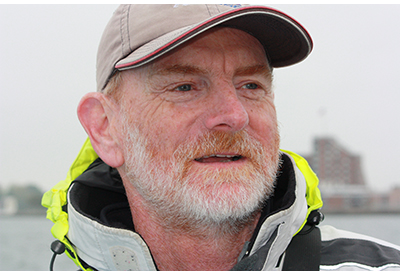 David Dellenbaugh is the publisher, editor and author of Speed & Smarts, the racing newsletter. He was the tactician and starting helmsman on America3 during her successful defense of the America’s Cup in 1992 and sailed in three other America’s Cup campaigns from 1986 to 2007. David is also two-time winner of the Canada’s Cup, a Lightning world champion, two-time Congressional Cup winner, seven-time Thistle national champion, three-time Prince of Wales U.S. match racing champion and past winner of the U.S. Team Racing Championship for the Hinman Trophy. He is currently a member of the US Sailing Racing Rules Committee (and was its chairman from 2005-2008).
David Dellenbaugh is the publisher, editor and author of Speed & Smarts, the racing newsletter. He was the tactician and starting helmsman on America3 during her successful defense of the America’s Cup in 1992 and sailed in three other America’s Cup campaigns from 1986 to 2007. David is also two-time winner of the Canada’s Cup, a Lightning world champion, two-time Congressional Cup winner, seven-time Thistle national champion, three-time Prince of Wales U.S. match racing champion and past winner of the U.S. Team Racing Championship for the Hinman Trophy. He is currently a member of the US Sailing Racing Rules Committee (and was its chairman from 2005-2008).
You can subscribe to the Speed & Smarts newsletter HERE


